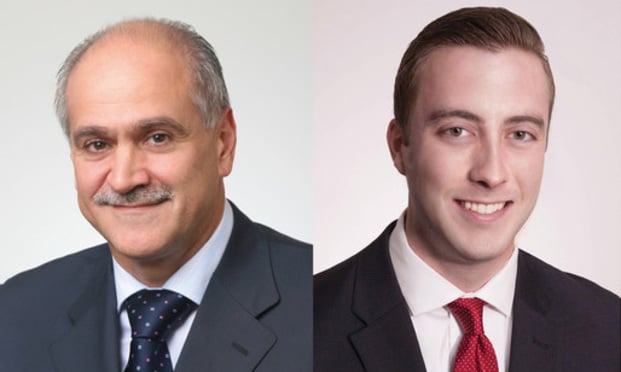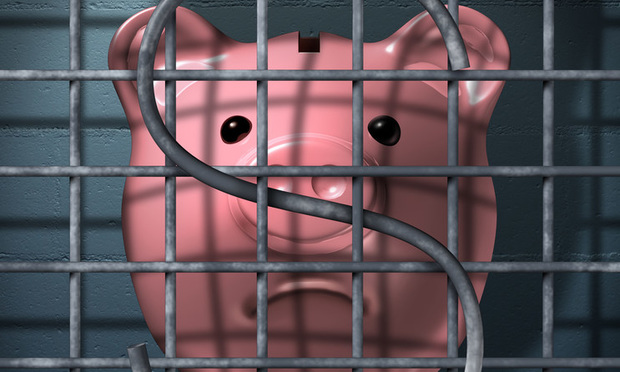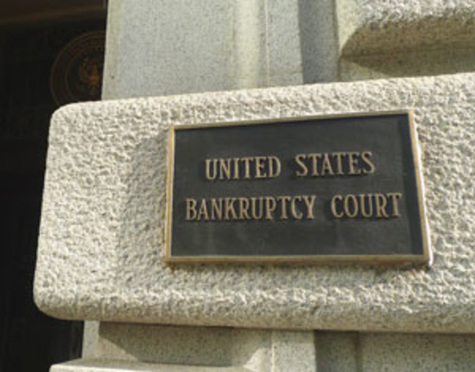Rudolph J Di Massa

December 27, 2018 | The Legal Intelligencer
Bankruptcy Court Rejects Hypothetical Preference Waiver in Critical Vendor DefenseIn a matter of first impression within the U.S. Court of Appeals for the Second Circuit, the U.S. Bankruptcy Court for the Eastern District of New York recently rejected a preference defendant's request to apply a “hindsight analysis” in order to determine that a hypothetical preference waiver would have been granted in its favor.
By Rudolph J. Di Massa, Jr. and Keri L. Wintle
6 minute read

November 15, 2018 | The Legal Intelligencer
Inherited IRAs Not Exempt From Bankruptcy Estate Under New York LawIn a matter of first impression, the U.S. Bankruptcy Court for the Northern District of New York recently analyzed whether a debtor may exempt from her bankruptcy estate a retirement account that was bequeathed to her upon the death of her parent.
By Rudolph J. Di Massa, Jr. and Catherine B. Heitzenrater
7 minute read

October 04, 2018 | The Legal Intelligencer
Court: New Value Need Not Remain Unpaid to Limit Preference LiabilityIn Kaye v. Blue Bell Creameries (In re BFW Liquidation), 899 F.3d 1178 (11th Cir. 2018), the U.S. Court of Appeals for the Eleventh Circuit found that a liability for an allegedly preferential transfer may be reduced by the amount of new value given, regardless of whether that new value has already been repaid by the debtor before its bankruptcy filing.
By Rudolph J. Di Massa, Jr. and Drew S. McGehrin
8 minute read

August 16, 2018 | The Legal Intelligencer
Effect of Rejected Trademark License Agreement on Rights of UseSection 365(a) of the Bankruptcy Code permits a debtor or trustee, subject to bankruptcy court approval, to reject an executory contract and release the debtor's estate from burdensome contractual obligations that may impede the debtor's successful reorganization.
By Rudolph J. Di Massa Jr. and Keri L. Wintle
7 minute read

June 29, 2018 | The Legal Intelligencer
Suit Yourself: Actions Against Trustees Not Subject to 'Barton' DoctrineThe Barton doctrine is a legal principle that limits a court's jurisdiction over a cause of action brought against a court-appointed receiver.
By Rudolph J. Di Massa, Jr. and Jarret P. Hitchings
2 minute read

May 24, 2018 | The Legal Intelligencer
Prepetition Setoff Not an 'Improvement in Position' Under Bankruptcy CodeIn a recent decision out of the United States Bankruptcy Court for the Western District of Virginia, a court analyzed the effect of a setoff effectuated between two governmental units in the 90 days prior to the filing of a husband and wife's bankruptcy case.
By Rudolph J. Di Massa Jr. and Catherine B. Heitzenrater
8 minute read

April 02, 2018 | The Legal Intelligencer
Second Circuit Court Declines to Enforce Arbitration ClauseIn Anderson v. Credit One Bank, Case No. 16-2496 (2d Cir., March 7), the U.S. Court of Appeals for the Second Circuit affirmed decisions of both the District and Bankruptcy Courts for the Southern District of New York in addressing the enforceability of arbitration clauses in bankruptcy proceedings.
By Rudolph J. Di Massa, Jr. and Drew S. McGehrin
7 minute read

February 15, 2018 | The Legal Intelligencer
Approval of Fee Defense Provisions in Retention Agreements Post-'ASARCO'The Bankruptcy Code authorizes a debtor (or its bankruptcy trustee) to retain and compensate attorneys and other professionals during the course of the debtor's bankruptcy case.
By Rudolph J. Di Massa Jr. and Jarret P. Hitchings
8 minute read

November 16, 2017 | The Legal Intelligencer
Sovereign Immunity in Bankruptcy Cases: Can a Trustee Sue the State?Typically, a state governmental entity is immune from suit unless the state explicitly waives its own sovereign immunity with respect to a particular claim or issue.
By Rudolph J. Di Massa, Jr. and Catherine B. Heitzenrater
12 minute read

October 05, 2017 | The Legal Intelligencer
Court: Debt to Paramour Obtained by Fraud Partially NondischargeablePursuant to Section 727(a) of the Bankruptcy Code, an individual debtor can obtain a discharge of his pre-petition debts, see 11 U.S.C. Section 727(a). In general, the effect of a discharge is to relieve the debtor from all debts that arose before the date the debtor filed for bankruptcy protection.
By Rudolph J. Di Massa, Jr. and Jarret P. Hitchings
22 minute read
Trending Stories
- 1Friday Newspaper
- 2Judge Denies Sean Combs Third Bail Bid, Citing Community Safety
- 3Republican FTC Commissioner: 'The Time for Rulemaking by the Biden-Harris FTC Is Over'
- 4NY Appellate Panel Cites Student's Disciplinary History While Sending Negligence Claim Against School District to Trial
- 5A Meta DIG and Its Nvidia Implications
More from ALM
- Legal Speak at General Counsel Conference East 2024: Match Group's Katie Dugan & Herrick's Carol Goodman 1 minute read
- Legal Speak at General Counsel Conference East 2024: Eric Wall, Executive VP, Syllo 1 minute read
- Legal Speak at General Counsel Conference East 2024: Virginia Griffith, Director of Business Development at OutsideGC 1 minute read



